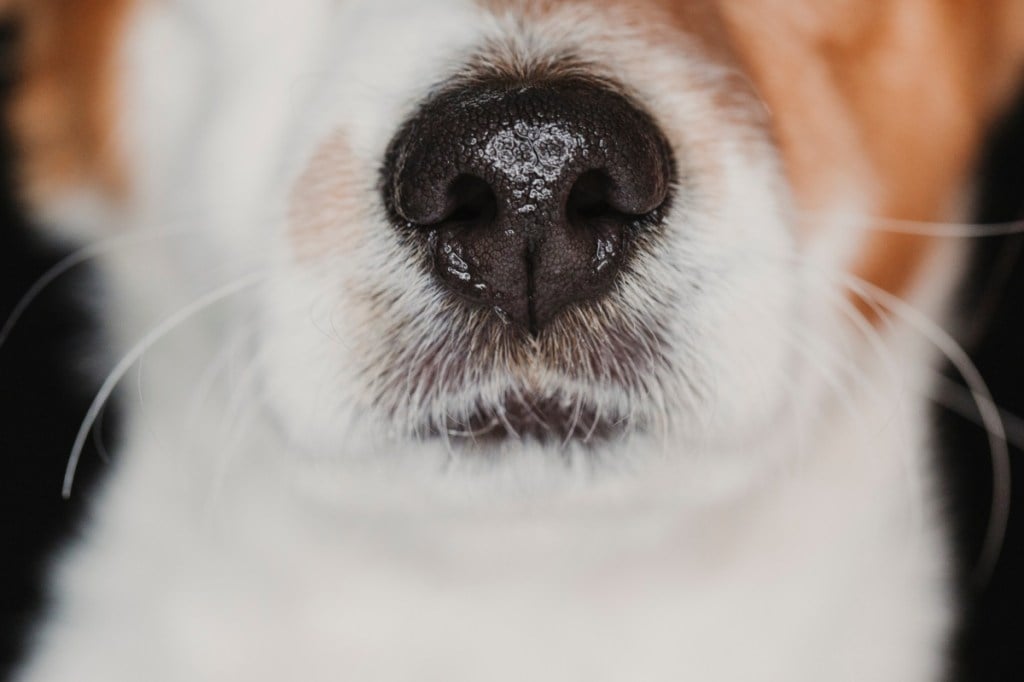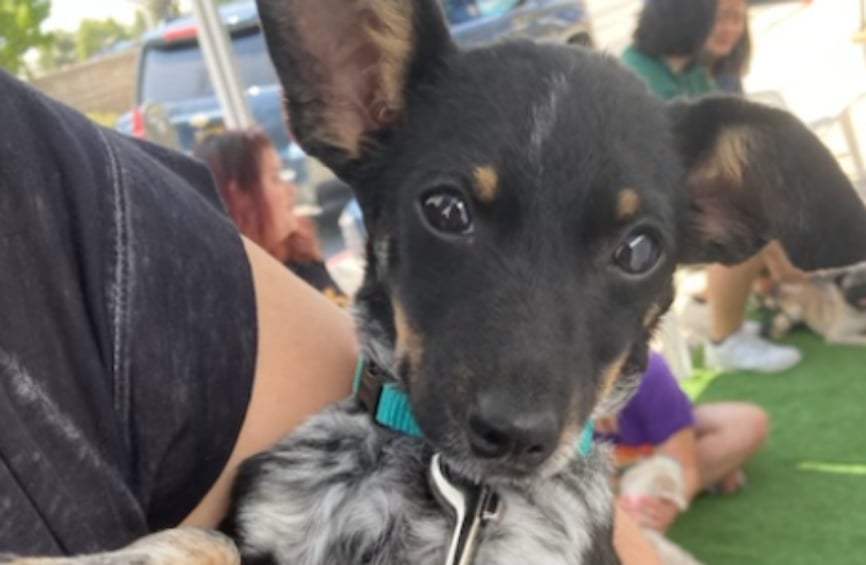Table of Contents
The inside of a dog’s stomach is a crazy place. Think of everything that goes in there (some of which probably shouldn’t). Plus, glands in the stomach wall secrete a strong acid that helps dogs digest food and kills off bacteria and other potential pathogens that could make them sick. However, gastric acid is so powerful that it can also damage the lining of a dog’s stomach and lead to a gastric ulcer when things go awry.
What is a Gastric Ulcer?
A gastric ulcer is simply an open sore on the inner surface of a dog’s stomach. Gastric ulcers usually develop when too much stomach acid is present or when something has gone wrong with the gastric mucosal barrier – the layers of mucus, tissues, and molecular compounds that normally protect the stomach wall.
Causes of Gastric Ulcers in Dogs
Dogs can develop gastric ulcers for many reasons, including:
- Drug side effects – Dogs who are treated with high doses or long courses of nonsteroidal anti-inflammatories (NSAIDs) and corticosteroid medications are at increased risk for gastric ulcers because these drugs lower the levels of prostaglandins that help protect the lining of the stomach.
- Other conditions that disrupt the barrier that protects the stomach – Lots of health problems can cause damage to the gastric mucosal barrier, including inflammatory bowel disease, infections (especially with a bacteria called Helicobacter), tumors in the stomach wall, eating foreign material, neurologic disorders, surgery to the stomach, gastric dilatation and volvulus, low protein levels, and shock.
- Health problems that make the stomach more acidic – Liver disease, chronic kidney disease, gastrinomas (a tumor in the pancreas), and mast cell tumors can all increase the production of gastric acid and may result in stomach ulcers.
- Extreme exercise – Several studies have found an extremely high (up to 48.5%) prevalence of gastric ulcers in sled dogs competing in the Iditarod.
In some cases, an underlying cause for a dog’s gastric ulcer may not be obvious.
Symptoms of Gastric Ulcers
Vomiting is by far the most common symptom of gastric ulcers in dogs, but lots of things make dogs vomit! Other signs to look for include:
- Vomit that may contain bright red blood or partially digested blood that resembles coffee grounds
- Poor appetite
- Weight loss
- Drooling
- Abdominal pain
- Dark stools, which can be seen when partially digested blood is present
Severe gastric ulcers can lead to significant blood loss or create a hole (perforation) that allows stomach contents to leak into a dog’s abdominal cavity resulting in a serious condition called peritonitis. Talk to your veterinarian if your dog has any of the symptoms associated with a gastric ulcer. They can tell you if your dog needs to be seen immediately.
How are Gastric Ulcers Diagnosed?
All of the symptoms of gastric ulcers in dogs can also be seen with other health problems. Therefore, a veterinarian will need to do a thorough workup to start narrowing down the potential causes. They will start by asking you questions about your dog’s health and lifestyle and then perform a physical examination. Be sure to mention any drugs or supplements that your dog is taking. Diagnostic testing will usually follow and may include:
- Fecal exams
- Bloodwork
- Urinalysis
- Imaging (x-rays and/or ultrasound) of your dog’s abdomen
- Additional tests may also be necessary
The results of all these tests will help your veterinarian rule out other causes of your dog’s symptoms and identify any potential underlying health problems. However, definitively identifying an ulcer usually requires the use of an endoscope or surgery that allows the veterinarian to look inside your dog’s stomach.
Treatment for Gastric Ulcers in Dogs
Mild to moderate gastric ulcers usually respond well to medical treatment. Several different types of drugs are available that can reduce the production of stomach acid or help protect the stomach’s lining as it heals. Veterinarians frequently prescribe omeprazole, misoprostol, or sucralfate, but other options are available too.
Dogs with severe gastric ulcers often need additional treatment and supportive care. Fluid therapy can counteract dehydration while transfusions may be required if a dog has lost a lot of blood. Your veterinarian will likely recommend surgery if a tumor is present, if your dog has a perforation and peritonitis, or if the ulcer doesn’t heal with medical treatment. If an underlying cause for the ulcer has been identified, it should be treated as well.
The diagnosis and treatment of gastric ulcers in dogs can get quite expensive, but the exact costs will depend on the specifics of a dog’s case.
Recovery and Management of Gastric Ulcers
Fortunately, most dogs with mild to moderate gastric ulcers will recover as long as they receive appropriate treatment. However, severe ulcers (including those that lead to perforation and peritonitis) and those associated with serious underlying health problems have a worse prognosis.








